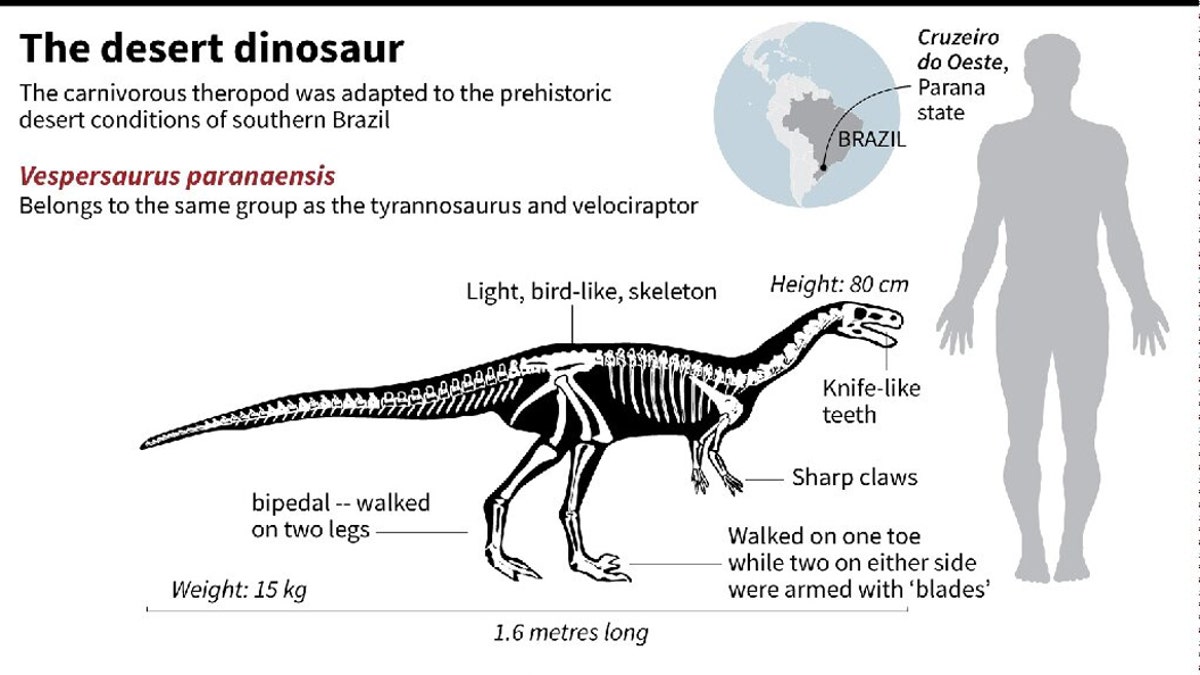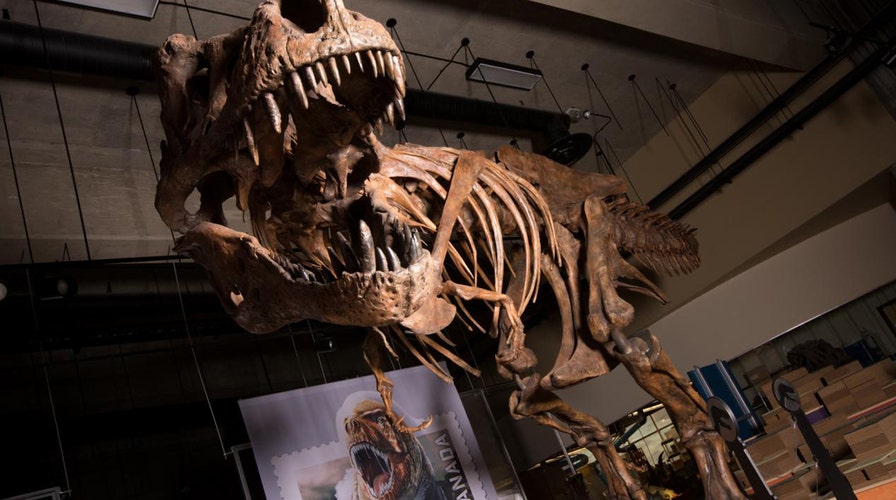Fox News Flash top headlines for July 8
Fox News Flash top headlines for July 8 are here. Check out what's clicking on Foxnews.com
Talk about a balancing act.
Paleontologists have uncovered a new species of dinosaur that lived 90 million years ago in modern-day Brazil with an almost unheard-of characteristic: It balanced its weight on a single toe.
Known as Vespersaurus, this bipedal carnivorous walked upright on both legs using its three-toe feet, but shifted its weight almost entirely to one toe, judging by fossilized footprints discovered in the 1970s.

Factfile on the carnivorous theropod dinosaur, adapted to the prehistoric desert conditions of southern Brazil 90 million years ago. (Credit: Phys.org)
THE BIGGEST DINOSAUR TO EVER WALK THE EARTH JUST WANTS TO TEXT YOU
"Such anatomical adaptation is formerly unrecorded among archosaurs, but has been previously inferred from footprints of the same stratigraphic unit that yielded the new dinosaur," the study's abstract reads.
"It's incredible that, nearly 50 years later, it seems that we have discovered what type of dinosaur would have produced those enigmatic footprints," said Paulo Manzig of the Paleontology Museum of Cruzeiro do Oeste in a statement.
It's unclear at this point how Vespersaurus, which belonged to the same group of dinosaurs as the Tyrannosaurus and Velociraptor, benefited from being a monodactyl, but the trait does exist in animals today, most notably kangaroos.
The entire fossil of Vespersaurus was just over five feet in length, a far cry from its larger cousin, the T. rex, which reached up to 40 feet in length.
FOSSIL OF 'REAL-LIFE LOCH NESS MONSTER' FOUND IN ANTARCTICA WAS THE BIGGEST SEA DINOSAUR EVER
It was found in the northern part of Parana, which had a dry and arid climate during the Cretaceous period, similar to today's deserts. As other dinosaurs have been found in the area, it's possible there are more discoveries to be made in the region.
"It is a rich but little explored area that would surely bring great news to the world of paleontology," Neurides Martins of the Paleontology Museum of Cruzeiro do Oeste, added in the statement.
The study was published in the scientific journal Nature Scientific Reports.

